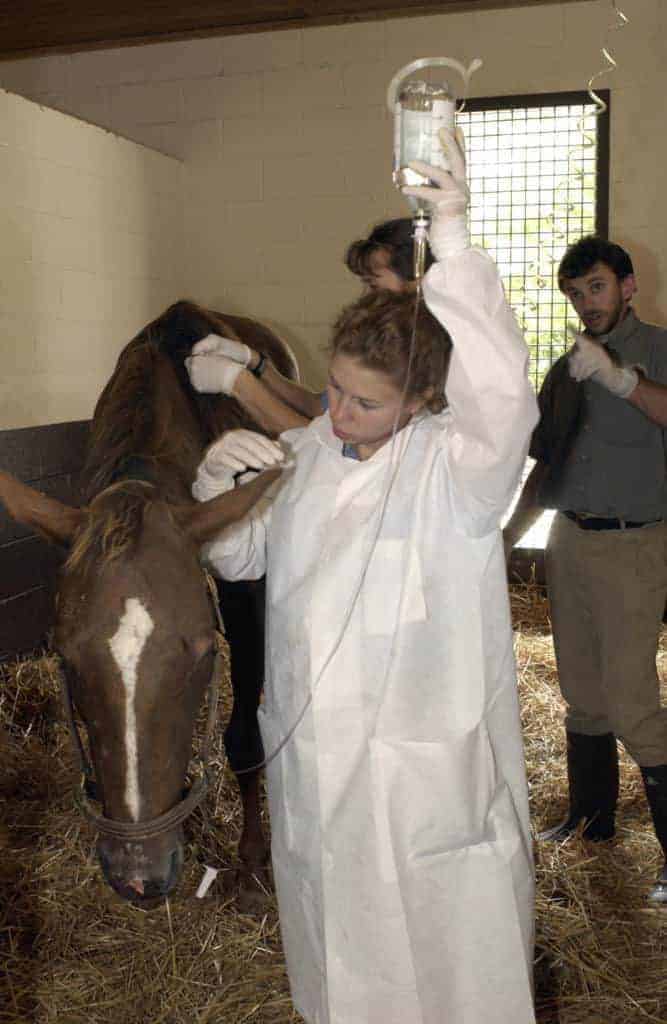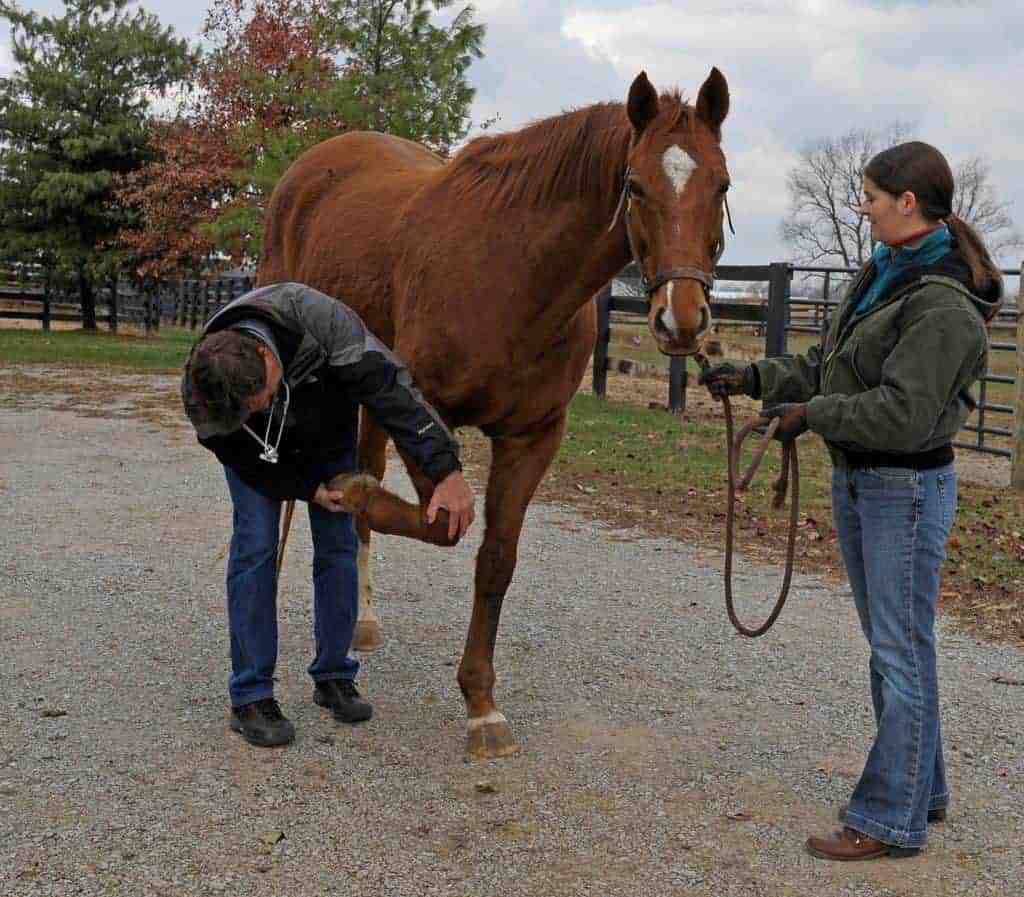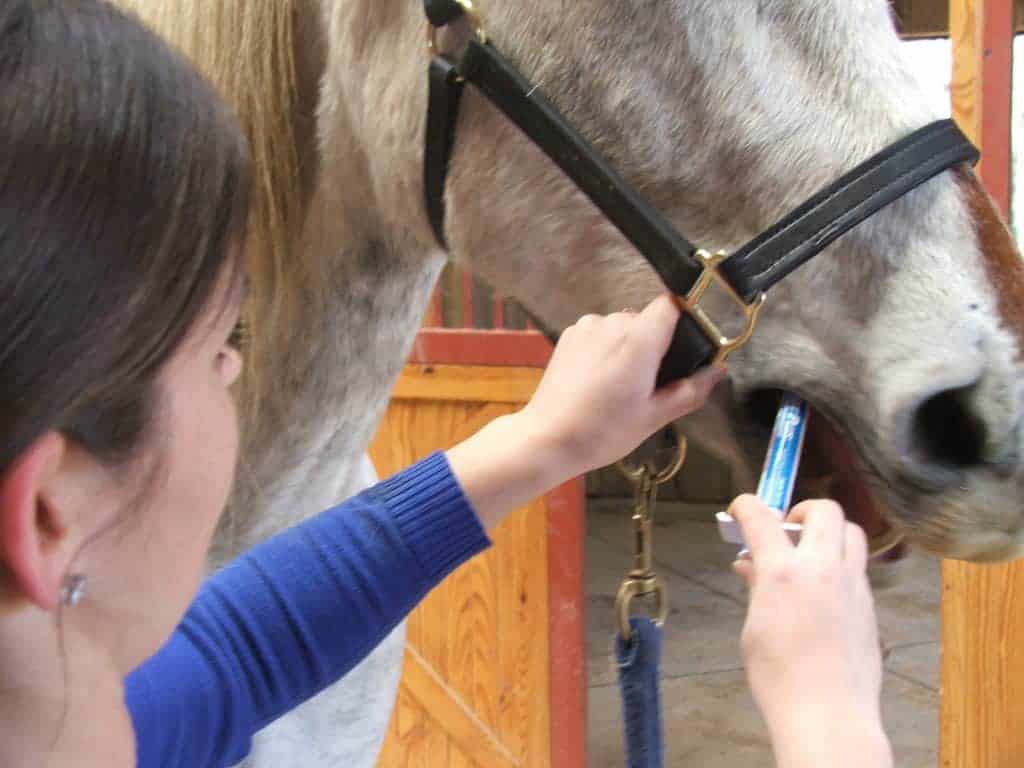
Nanoparticles to Diagnose, Treat Equine Medical Conditions?
Researchers evaluate the possibility of using nanoparticles to diagnose and treat some ailments.

Researchers evaluate the possibility of using nanoparticles to diagnose and treat some ailments.

What factors do veterinarians look for when deciding whether to refer a horse to a hospital for colic surgery?

Equine veterinarians are 23 times more likely to contract antibiotic-resistant bacteria than horse owners.
Tune in for TheHorse.com’s free webinar on pain management on August 30, 8-9 p.m. Eastern U.S. time.

What can vets and owners do to make veterinary visits less stressful for the horses and people involved?

EIA researchers are now recommending that we test many horses less frequently and focus more effort on finding untested carriers.
Humans pose a risk of transmitting blood-borne infections between horses, such as equine infectious anemia.
The National Reining Horse Association (NRHA) Board of Directors recently voted to approve an Animal Welfare

Could a healthy horse in one’s own backyard be a disease risk for other horses?
Researchers have made great strides in their understanding of EPM and improvements in diagnostic and treatment
Finding a horse recumbent (unable to rise after lying down) is a nightmare no horse owner wants to experience.
Applying a vapocoolant spray before joint injections appears to decrease anticipation of pain and actual pain
The Ohio State University College of Veterinary Medicine is seeking horses diagnosed with osteoarthritis to
The New Bolton Center will the lecture “Prepurchase Examinations: The Role of the Veterinarian” on July 5.
Pasture rest could be the best treatment option for horses diagnosed with lower cannon bone stress remodeling.

Intensive use of anthelmintics has fueled parasite resistance to these drugs; here’s how to combat resistance.
Stay on top of the most recent Horse Health news with
"*" indicates required fields